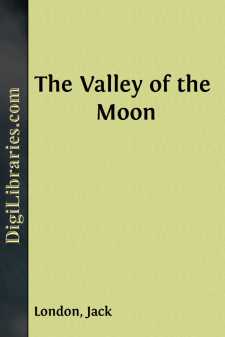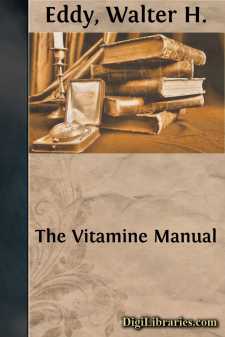Categories
- Antiques & Collectibles 13
- Architecture 36
- Art 48
- Bibles 22
- Biography & Autobiography 813
- Body, Mind & Spirit 142
- Business & Economics 28
- Children's Books 17
- Children's Fiction 14
- Computers 4
- Cooking 94
- Crafts & Hobbies 4
- Drama 346
- Education 46
- Family & Relationships 57
- Fiction 11829
- Games 19
- Gardening 17
- Health & Fitness 34
- History 1377
- House & Home 1
- Humor 147
- Juvenile Fiction 1873
- Juvenile Nonfiction 202
- Language Arts & Disciplines 88
- Law 16
- Literary Collections 686
- Literary Criticism 179
- Mathematics 13
- Medical 41
- Music 40
- Nature 179
- Non-Classifiable 1768
- Performing Arts 7
- Periodicals 1453
- Philosophy 64
- Photography 2
- Poetry 896
- Political Science 203
- Psychology 42
- Reference 154
- Religion 513
- Science 126
- Self-Help 84
- Social Science 81
- Sports & Recreation 34
- Study Aids 3
- Technology & Engineering 59
- Transportation 23
- Travel 463
- True Crime 29
Sort by:
by:
John Galsworthy
ACT I It is Ascension Day in a village of the West. In the lowpanelled hall-sittingroom of the BURLACOMBE'S farmhouse on thevillage green, MICHAEL STRANGWAY, a clerical collar round histhroat and a dark Norfolk jacket on his back, is playing theflute before a very large framed photograph of a woman, which isthe only picture on the walls. His age is about thirty-five hisfigure thin and very upright...
more...
The Diver’s Rock. Boom! with a noise like thunder. Plash! directly after; but the sounds those two words express, multiplied and squared if you like, till the effect upon the senses is, on the first hearing, one of dread mingled with awe at the mightiness of the power of the sea. For this is not “how the waters come down at Lodore,” but how they come in at Carn Du, a little fishing town on the...
more...
by:
Honore de Balzac
A PASSION IN THE DESERT "The whole show is dreadful," she cried coming out of the menagerie of M. Martin. She had just been looking at that daring speculator "working with his hyena,"—to speak in the style of the programme. "By what means," she continued, "can he have tamed these animals to such a point as to be certain of their affection for——" "What seems to...
more...
LITTLE BO-PEEP. Little Bo-Peep has lost her sheep,And can’t tell where to find them;Leave them alone, and they’ll come home,And bring their tails behind them. Little Bo-Peep fell fast asleep,And dreamt she heard them bleating;But when she awoke, she found it a joke,For they were still a-fleeting. Then up she took her little crook,Determined for to find them;She found them indeed, but it made her...
more...
by:
Jack London
CHAPTER 1 "You hear me, Saxon? Come on along. What if it is the Bricklayers? I'll have gentlemen friends there, and so'll you. The Al Vista band'll be along, an' you know it plays heavenly. An' you just love dancin'—-" Twenty feet away, a stout, elderly woman interrupted the girl's persuasions. The elderly woman's back was turned, and the back-loose,...
more...
by:
Charles Cotton
It is very easy to verify, that great authors, when they write of causes, not only make use of those they think to be the true causes, but also of those they believe not to be so, provided they have in them some beauty and invention: they speak true and usefully enough, if it be ingeniously. We cannot make ourselves sure of the supreme cause, and therefore crowd a great many together, to see if it may...
more...
by:
Walter H. Eddy
HOW VITAMINES WERE DISCOVERED In 1911 Casimir Funk coined the name Vitamine to describe the substance which he believed curative of an oriental disease known as beri-beri. This disease is common in Japan, the Philippines and other lands where the diet consists mainly of rice, and while the disease itself was well known its cause and cure had baffled the medical men for many years. Today in magazines,...
more...
THE INTERRUPTED GAME Jefferson Square was a short street in Gaminsville, occupying just one block. It took only two things on one side of it to fill up the space from corner to corner. One was the Convent of the Good Shepherd, built on a large lot surrounded by a high brick wall; the other, a common where all the people around dumped cinders, rags, tin cans—in fact, anything on earth they wished to...
more...
CHAPTER I. A STORM ON LAKE ERIE. "Dick, do you notice how the wind is freshening?" "Yes, Sam, I've been watching it for ten minutes. I think we are in for a storm." "Exactly my idea, and I shouldn't be surprised if it proved a heavy one, too. How far are we from shore?" "Not over three miles, to my reckoning." "Perhaps we had better turn back," and Sam...
more...
by:
Thomas Cobb
CHAPTER I LATE FOR DINNER Concerning Bridget there was from the outset considerable difference of opinion. Mark Driver, for instance, always showed a tendency to something more than tolerance, and even Carrissima Faversham, in spite of a manifestly unfavourable bias, strove to hold the balance even. It was her brother Lawrence who took the most adverse view; insisting that Miss Rosser was neither more...
more...











